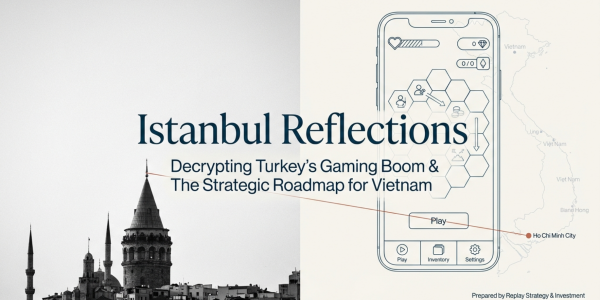The Rise of Deceptive Mobile Games Ads

In recent years, mobile games have exploded in popularity, capturing the attention of millions worldwide. However, as competition for downloads intensifies, some mobile game developers have resorted to questionable marketing practices—particularly, the use of fake gameplay ads. These misleading ads often show gameplay mechanics that do not exist in the actual game, leaving users frustrated and feeling deceived after downloading the app.
The Birth of Fake Ads
When mobile games first began gaining traction, their ads generally showcased the real gaming experience, or an embellished version of gameplay. However, as the mobile gaming market became more and more competitive, developers started turning to more eye-catching, often fabricated ads to stand out. The explosion of hyper-casual games, and their highly competitive growth strategies has brought to light a whole new strategy to bring users to their titles. A strategy that saw potential new game mechanics tested as an ad before ever becoming a game. A route that gave publishers knowledge that users were interested in such a mechanic or not, and whether the CPI of said advert was lower than their needed revenue in order to gain a profitable ROAS.
Other publishers that weren’t in the hyper-casual game were suddenly taking notice of this strategy, and began to play with it themselves. Playrix, the company behind popular games like Homescapes and Gardenscapes, frequently displayed ads that showed unique and highly engaging puzzle-solving mechanics, showcasing their storytelling gameplay which separated them from the…KING(pun intended) match-3 game, Candy Crush. Until they realised that these new publishers were growing at insane rates, bringing users to their titles for pennies.
So, as any large company with the sight of increasing profits would, they ran at it - because if you can’t beat them, join them. The new ads that were being published would depict a scenario in which players had to make decisions such as "pulling pins" to save a character from danger. These puzzle-like mechanics were highly attractive to users. However, once users downloaded the games, they found that this type of gameplay was either extremely rare or absent altogether. The actual games were much more focused on match-3 puzzles, not the gripping decision-making moments shown in the ads. This prompted the ASA to issue a ban on these misleading ads in 2020, labeling them a breach of advertising rules due to their misleading nature.
Fake App Store Listings
As the fake ads continue to develop, publishers have gone another step further, and edited their whole store listing to simulate those ads, some go so far to hide the fact there is a game in there at all. Here are just a few icons from titles that are high in the top grossing charts, showcasing their ads as icons instead of an icon that represents gameplay in any way, giving the user more reason to think the game is the ad they’ve just seen.
What About the Ethical Implications?
Whether it's a pull the pin, running through gates, or choices feature you’re faced with, the reason they continue to grow and grow is simple. Profit. These ads bring in lots of users at a cheap price, and with the quantity of users, they will get enough of them that go onto play the game and eventually spend to make a profit. With all of the studios closing, and redundancies happening within our industry, it seems to me that right now, honesty is certainly not the best policy anymore. The app stores have gotten lazy, allowing store listings to feature gameplay that aren’t part of the core loop, something that used to be VERY difficult to get through, especially on the App Store.
The Impact on User Trust
The popularity of fake gameplay in mobile ads has had a significant impact on user trust. Players are left feeling misled and cheated after downloading a game that does not deliver the experience promised in the advertisements. This erosion of trust can have long-term consequences for the mobile gaming industry, as users may become increasingly skeptical of all game ads, including those that are truthful.
In a market that thrives on engagement and retention, losing the trust of users is a significant issue. When players feel misled, they are less likely to continue playing the game, make in-game purchases, or recommend it to others. In turn, developers may lose out on potential revenue streams. More importantly, the continuous spread of fake ads can tarnish the reputation of the mobile gaming industry as a whole, making it harder for developers who follow ethical practices to compete.
How to Fight Back Against Fake Ads
As mobile game users, it’s crucial to be aware of these deceptive practices and take steps to avoid falling for misleading ads. Here are several ways that both users and platforms can fight against the spread of fake gameplay ads:
1. Report Misleading Ads: Most advertising platforms allow users to report ads that they find misleading. Taking a moment to report fake gameplay ads can help reduce the frequency with which they appear and push platforms to take more action against dishonest developers.
2. Leave Honest Reviews: One of the most effective ways to warn potential players about misleading games is to leave an honest review on the app store. Be specific in detailing how the game differs from its advertisement, as this helps others make informed decisions before downloading.
3. Push for Stricter Regulations: While the ASA’s ruling against Playrix was a step in the right direction, more needs to be done. Players and consumer protection organizations should continue to push for stricter regulations globally, ensuring that game developers are held accountable for misleading advertisements. We need both the governments, app stores and ad networks to begin fighting back against fake ads. Speak about this at the next networking event you attend, and speak with your account managers about it mattering to you.
4. Use Ad Transparency Tools: Some ad platforms are beginning to introduce tools that provide transparency into how ads are displayed. Explore these tools - they may come at an extra cost, but remember, a bad ad experience in your game will leave a sour taste in that user's mouth.
Final Thoughts
The use of fake gameplay in mobile ads has created a trust deficit between developers and users, and while regulatory actions are an important step, more needs to be done. Players must be vigilant and vocal about deceptive ads, while developers and platforms must adopt ethical advertising practices to restore trust and ensure the long-term health of the industry. Only through collective effort can we curb this harmful trend and create a fairer, more transparent mobile gaming landscape. Turning the market into an honest, and ethical space will take time, but small steps can be taken today to start making a difference in the future.











